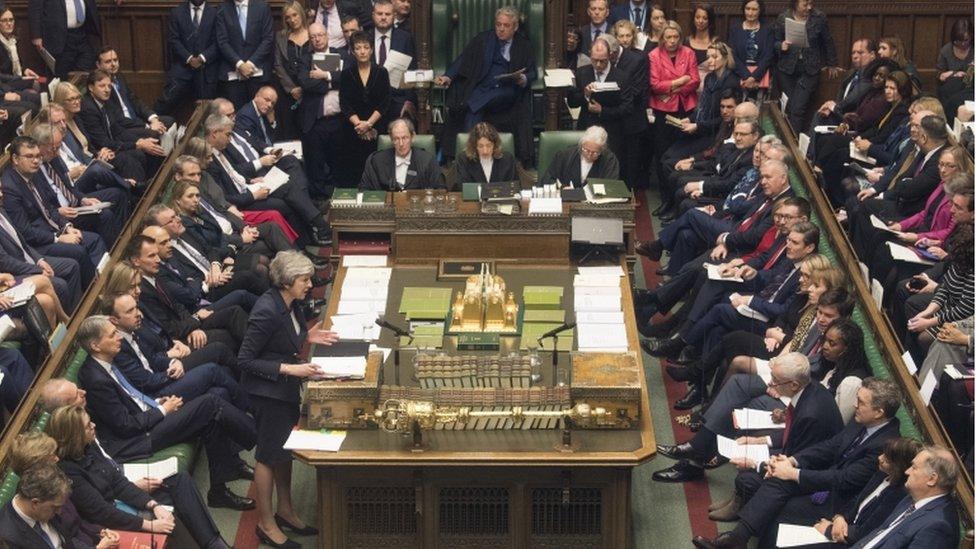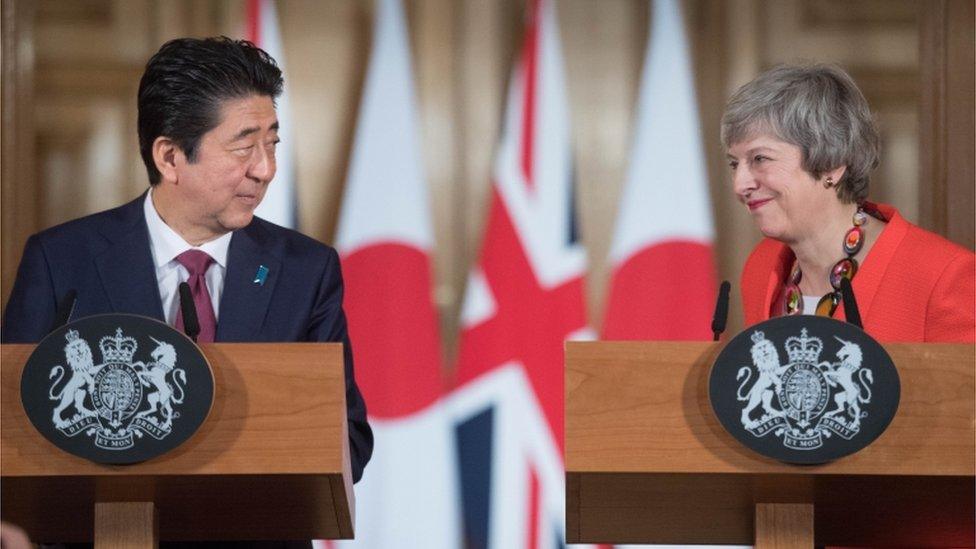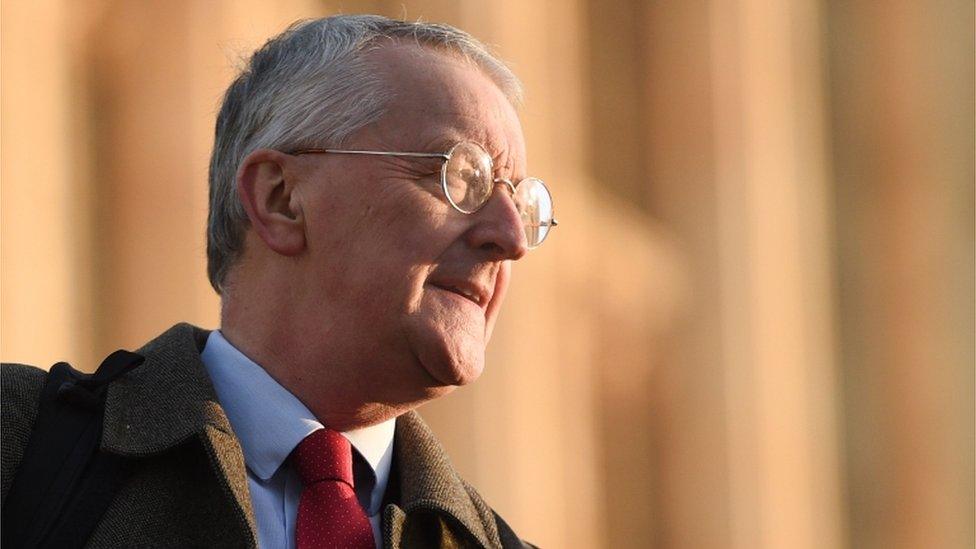What could change the dynamics of Brexit vote?
- Published

"We're going to get smashed" - one government insider's apocalyptic prediction about one of the most important votes in recent political history, the big night next Tuesday when MPs give their verdict on the government and the EU's compromise.
As things stand, MPs are on course to kybosh Theresa May's long-argued-over Brexit deal, with a very heavy defeat.
Dozens of her own backbenchers have said publicly they will vote against it.
The opposition parties are adamant they will say "no" too.
The Tories' supposed partners in government, the DUP, are deeply dug-in to opposing the agreement, for reasons we've discussed plenty of times here.
And although there are whispers of compromises that might peel off a few rebels here and there and a handful of switchers - like her former policy chief George Freeman who revealed his change of heart, external in the Commons and will now back her - there is nothing on the horizon that looks like shifting big numbers.
The draft script for Tuesday's drama, therefore, outlines a heavy and embarrassing defeat for the prime minister on her central policy, with nothing and no-one seeming to come to her rescue.

Japanese PM Shinzo Abe met Theresa May for talks on Thursday
But there are at least two factors that could change the dynamics, quite separate to the chorus of warnings about no deal from members of the Cabinet and outside voices like the Japanese leader Shinzo Abe.
First off, with any rebellion it's not a bad rule of thumb to suggest that many of those who have made loud complaints may, in the end, prove to be less brave than they at first appear.
It is not unusual for cantankerous politicians to be proven to have had rather a lot of mouth - and rather threadbare trousers.
One senior Brexiteer told me they reckoned they had around 40 or 50 critics solid and certain to vote to reject the deal, far fewer than the hundred or so publicly opposed.
Parliament seems in such uproar that perhaps the numbers will be as high as the most dire warnings suggest.
But don't be surprised when MPs actually have to make a final decision and go through the division lobbies with their deadly rivals, if the scale of the defeat looks rather different. Casting a vote, especially one so vital, is very, very different to criticising a policy.
Second, we're not exactly short these days of twists in Parliamentary drama. And there could be another one next Tuesday.
Other tweaks, amendments, might be suggested by MPs, and voted on first.
The way this place works, if any of those ideas are approved, that would change what's on the table - maybe a little, maybe a lot.
That means, despite the months of rows about the precise terms of the agreement, there might not be a vote on Theresa May's deal in its original form.
This could be something relatively minor, although important to some MPs, like the increased environmental protections the PM has discussed with Labour MPs.
Or, much bigger, an amendment that kills the deal off altogether.
Still with me? Politically, what happens with the other ideas backbenchers put forward, before the expected vote on the deal as it stands, might matter enormously.
That's because a defeat on the plan as amended, might be much smaller than a defeat on the deal with no changes.
For Theresa May's authority, losing by a few dozen, is very different to losing by way over 100.
That might, in turn, make it seem much more credible for the prime minister to have another go at getting it through.

Will Hilary Benn's amendment go to the vote?
And it also will matter who the main architects of the defeat appear to be.
Government sources warning of being "smashed" in the Commons suggest the best outcome for them is, perversely, losing on an amendment, therefore avoiding a straightforward and overwhelming "no" to their deal.
Some Brexiteers and some in government believe that that the Labour MP Hilary Benn's suggested change - that would reject the deal, and rule out no deal - could be voted through by MPs, because of support from former Remainers.
And a narrow defeat at the hands of Remainers would be a totally different political beast to a heavy, heavy defeat at the hands of Brexiteers in their own party.
Games not over
One well-known member of the Conservative Eurosceptic group the ERG joked: "We may not even end up being the bad guys - we might not have to rebel."
It's possible that Hilary Benn will pull that particular amendment, with talk of a different "no deal" amendment being put forward.
And one senior Labour figure suggested the party would do almost anything to make sure that there is a clear vote on the prime minister's proposal and that Parliamentary shenanigans don't get in the way of the Commons giving a definite view, (they expect a total kicking), of Theresa May's plan.
But as we head into these next few vital days, the point is that the serious games in the Commons are far from over.
And what happens this time next week will be affected by precisely how Tuesday night plays out.
In the wake of the likely defeat, Theresa May might make an emergency dash to Brussels, could pivot to a "plan B" or a series of emergency cross-party talks.
But the actual numbers, the atmosphere once the tellers have actually counted the votes and who walks through which lobby will still shape what she does next.

Need some guidance?

If you feel like you ought to know more about Brexit...